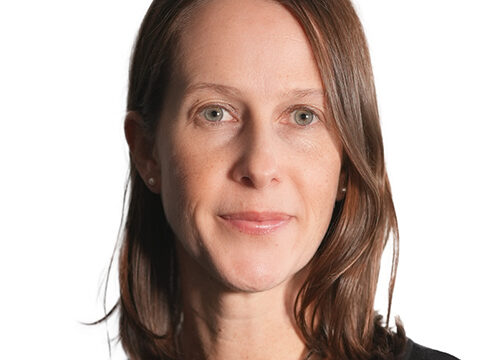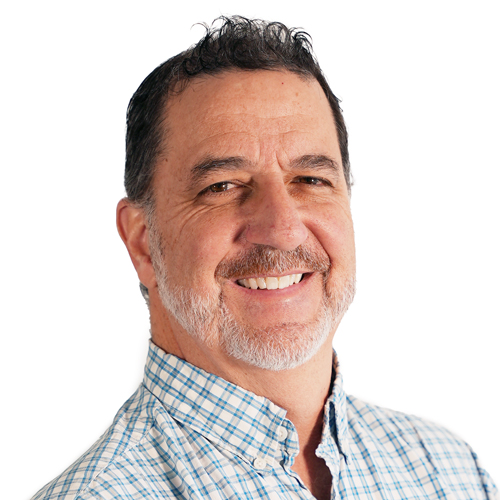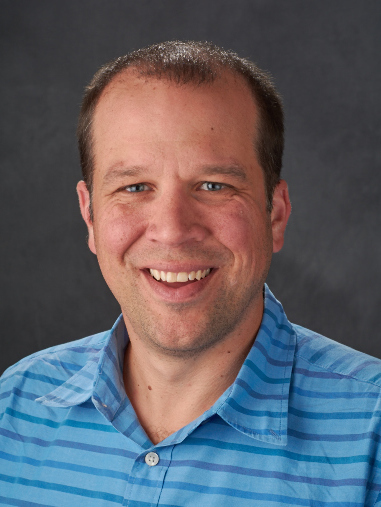During a press event at the University of Wisconsin-Madison Water Sciences and Engineering Lab (WSEL) yesterday, U.S. Rep. Mark Pocan announced $963,000 in funding for a new Center of Excellence in PFAS Environmental Science.
PFAS stands for per- and polyfluoroalkyl substances, a class of chemicals used in everyday items such as nonstick cookware, food packaging and stain-repellent products. Many PFAS resist degradation and are highly mobile in the environment. As a result, these chemicals have been detected across the globe and are directly impacting drinking water, as well as fisheries. They are known to cause negative health effects in people.
“UW-Madison is one of the premier research institutions in the United States and it was an honor to secure these federal funds for them,” Pocan said, “PFAS chemicals have been detected throughout our water table, contaminating both surface and groundwater systems. This funding will be used to help conduct research to improve the quality of Wisconsin’s drinking water by removing these harmful PFAS chemical compounds from the environment.”
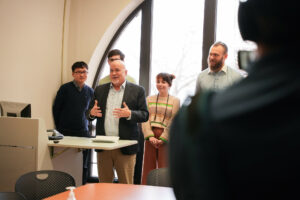
University of Wisconsin Water Resources Institute Interim Director Christy Remucal will lead the new center. She was unable to attend yesterday’s event but provided information to be shared on her behalf. “This support will allow researchers to advance actional research on PFAS. This is necessary to safeguard water quality and protect public health,” she wrote.
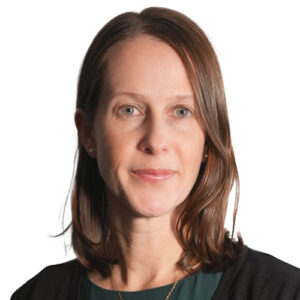
The center will be housed at WSEL, which currently offers the only accessible instrumentation on campus for measuring PFAS in environmental samples. In a proposal first suggesting the center, Remucal wrote, “Typical funded research projects support one researcher at a time. This funding will support multiple scientists through a collaborative Center of Excellence framework, enabling scientists to take a holistic approach to address this complex issue for the first time.”
Despite joking that he could explain the chemical makeup of the more than 9,000 PFAS and how the new center would address them, Pocan turned to others at the event during a tour of the lab to gain an understanding of current and future work.
That work will be expanded thanks to the purchase of a state-of-the-art mass spectrometer, using a portion of the new funding. Standard techniques allow researchers to now measure only about 40 different PFAS. The new instrumentation will allow researchers to study more PFAS chemicals.
The new instrument will also have high-resolution capabilities that let scientists detect and identify PFAS they currently can’t measure. This will advance the field of environmental forensics, which uses PFAS chemistry to identify the sources of contamination. This is critical for cleaning up and preventing PFAS contamination.
This investment also means researchers will increase the quantity of samples processed in the lab. Sample preparation is very time consuming and often limits how many samples can be analyzed. Through the center, Remucal plans to purchase things like automated extraction equipment that will let researchers process more samples.
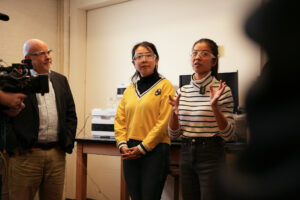
In her supplied remarks, Remucal noted that researchers are making progress in learning about PFAS and coming up with solutions to address them, especially here in Wisconsin.
Remucal also noted the number of researchers in Wisconsin who study PFAS has grown dramatically in the last five years. She wrote that work is ongoing to understand the fate of PFAS and how they are impacting the Great Lakes, quantify the amount of PFAS in waste materials, determine toxicity, find new detection techniques and, finally, conceive of ways to contain or remediate the chemicals.
Through WRI, a researcher is also currently studying PFAS levels in subsistence goods relevant to Indigenous communities—walleye, maple sap and wild rice.
Another current PFAS project is quantifying PFAS export from contaminated soil to underlying groundwater aquifers, and determining how long the contaminated soil can serve as a source of PFAS in the future.

